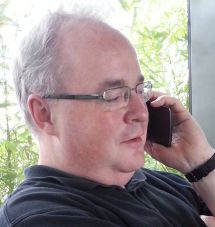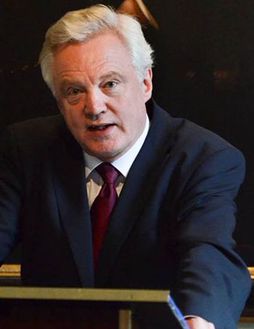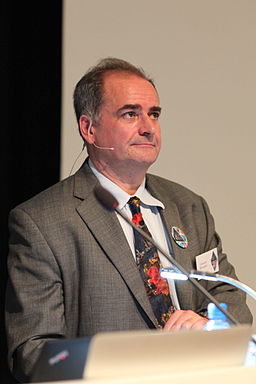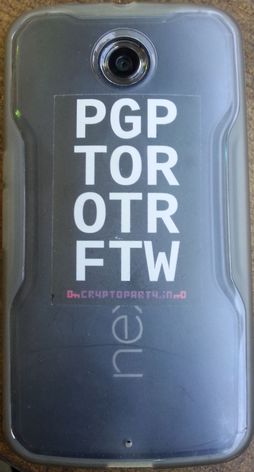Girlish GUIs
I spent some time this week reading Lean Out: The Struggle for Gender Equality in Tech and Start-Up Culture, a collection of essays, articles, and blog postings written by 25 women in, as you might guess, the technology field. (The review should be up at ZDNet soon.) Their collective experiences make depressing reading despite the courage, humor, and thoughtfulness with which they approach their various situations.  Here we are in 2015, nearly 50 years since feminism became a mainstream movement, and, as the book's editor, Elissa Shevinsky, writes, many women are departing the technology industry because they find the conditions too hostile.
Here we are in 2015, nearly 50 years since feminism became a mainstream movement, and, as the book's editor, Elissa Shevinsky, writes, many women are departing the technology industry because they find the conditions too hostile.
As a 1970s person, I want to scream, "No! Come back!" But these are different times. A woman entering a technical profession in, say, 1975, the year the number - not percentage - of women in Cornell's veterinary college nearly doubled, from 6 (out of 60) to 11 - wanted above all things to survive in her chosen profession. We were a generation for whom "lady" was a four-letter word. That was what our mothers wanted us to be, and breaking those constraints was a gleeful liberation. Among other things, for me, it meant not wanting men to self-consciously censor what they said in my presence. If it was sexist crap, I'd rather hear it openly; it's the secret back-channel stuff that can really hurt you. And the more men feel required to alter their behavior when women are present, the more they want men-only areas in which to unwind and be themselves...and those opportunities to game the system in their own favor are the unfortunate situation we wanted to end.
The saddest conundrum posed by Shevinsky's book is this one: do we encourage more women to enter the technology professions on the basis that these are good, interesting jobs that should be open to everyone while knowing they are likely to be miserable when they get there? What do you say to a technically inclined 13-year-old girl who is just beginning to encounter some of the many obstacles she will face? Can you honestly tell her that once she's run the gamut described in these essays of sexual harassment in labs, internships, and workplaces it will get easier? In the Silicon Valley that emerges from the writing of the 25 women who contributed to Lean Out, that would seem to be an outright lie. Yet discouraging her is unthinkable, both for her own life prospects and for an industry that truthfully cannot afford to overlook this enormous pool of talent. So we have to encourage them - as, for example, Emma Mulqueeny has been doing this week with Young Rewired State's annual Festival of Code - and we have to tell them honestly that it's a good road but a hard one.
Reading the book inspired me to revisit the now out-of-print 1996 collection Wired Women, edited by Elizabeth R eba Weise and Lynn Cherny. At the time, media tropes held that the online world was dangerous for women, who were then approximately a quarter of the online population, and that they should style themselves with male or unisex names in order to avoid unwanted attention. I always thought it was bad advice, since the more women masked their presence the less women would feel welcome. Plus: how dangerous could online be, when the beings there couldn't reach through your modem to hurt you? This collection was an attempt to show women's varying experiences online, both the wonderful (as in Weise's own "A Thousand Aunts with Modems") and the less wonderful (Stephanie Brail's "The Price of Admission: Harassment and Free Speech in the Wild, Wild West").
eba Weise and Lynn Cherny. At the time, media tropes held that the online world was dangerous for women, who were then approximately a quarter of the online population, and that they should style themselves with male or unisex names in order to avoid unwanted attention. I always thought it was bad advice, since the more women masked their presence the less women would feel welcome. Plus: how dangerous could online be, when the beings there couldn't reach through your modem to hurt you? This collection was an attempt to show women's varying experiences online, both the wonderful (as in Weise's own "A Thousand Aunts with Modems") and the less wonderful (Stephanie Brail's "The Price of Admission: Harassment and Free Speech in the Wild, Wild West").
Broadband and mass adoption have changed a lot of things. Cyberspace is no longer somewhere we go to encounter predominantly strangers, but somewhere we are, alongside everyone else we know. Those who want to lash out have not only an amplifier but myriad vectors by which to operate. "Why is flaming acceptable at all?" Lauren A. Sutton asked in her 1996 essay on online manners, baffled at the way even guides to "netiquette" seemed to regard it as something people should just get used to. We see the same arguments made today over flaming's descendants: cyberbullying, public shaming, rape and death threats, and whatever went on in the now-killed subReddits whose death Ellen Pao oversaw.
One of the more startling essays to revisit is digital library specialist Karen Coyle's "How Hard Can It Be?", in which she takes apart the prevailing masculine narrative surrounding computing. Graphical interfaces were relatively young then, recent enough for Coyle to quote John Dvorak's writing praising the old command-line DOS system over this new-fangled Windows business. Thusly: "The original split between PC users and Mac users was a battle between the masculine command-line interface and the girlish GUI." Coyle concluded by suggesting one possible future: the computer as appliance. "We must learn to read the computer culture for the social myth that it is."
Well, we've done that. Appliance computers - tablets, smartphones - are with us by the billion. No one seriously thinks of a computer - or the internet - as a "male thing" any more. One day we'll be saying the same about the technology industry. It just may not be in Silicon Valley any more.
Wendy M. Grossman is the 2013 winner of the Enigma Award. Her Web site has an extensive archive of her books, articles, and music, and an archive of earlier columns in this series. Stories about the border wars between cyberspace and real life are posted occasionally during the week at the net.wars Pinboard - or follow on Twitter.
 As Young explains, this isn't what the Copyright Hub is trying to do. Instead, it's trying to pick a starting point from where the process of change can start. That point is a plug-in for Firefox and Chrome that allows anyone landing on a piece of content to right-click to find a URI - uniform resource identifier - that uses an index to find the server belonging to the owner of that content. The URI has two parts, one an ordinary URL to identify the server from which the content can be licensed, and the second a specific identifier for that piece of content. Once connected to the server, a simple app pops up offering options to get a valid license for the content, which might include (as in the demonstration I saw - paying a small fee for non-commercial use and a larger one for commercial use.
As Young explains, this isn't what the Copyright Hub is trying to do. Instead, it's trying to pick a starting point from where the process of change can start. That point is a plug-in for Firefox and Chrome that allows anyone landing on a piece of content to right-click to find a URI - uniform resource identifier - that uses an index to find the server belonging to the owner of that content. The URI has two parts, one an ordinary URL to identify the server from which the content can be licensed, and the second a specific identifier for that piece of content. Once connected to the server, a simple app pops up offering options to get a valid license for the content, which might include (as in the demonstration I saw - paying a small fee for non-commercial use and a larger one for commercial use. 
 Tom Watson (Labour - West Bromwich East) and David Davis (Conservative - Haltemprice and Howden) in their suit against the government over last summer's
Tom Watson (Labour - West Bromwich East) and David Davis (Conservative - Haltemprice and Howden) in their suit against the government over last summer's 
 Bowden sprang into my life so fully formed as a privacy advocate that I was startled to discover he was not ever thus: conversational hints and online biographies indicate that he studied mathematics at Cambridge, worked in investment banking (writing proprietary trading risk management software for option arbitrage) and software engineering (graphics engines and cryptography). In the roughly 20 years I knew him, which encompassed his ten years trying to implement privacy at Microsoft, I never heard him mention family other than his wife. He argued with everyone: "Prickly for the right reasons," a friend said on hearing the news. I was astonished and flattered when, years afterwards, he told me that one of the things that led him into the politics of cryptography was articles I wrote in the early 1990s. Moments like that can keep a writer motivated for decades.
Bowden sprang into my life so fully formed as a privacy advocate that I was startled to discover he was not ever thus: conversational hints and online biographies indicate that he studied mathematics at Cambridge, worked in investment banking (writing proprietary trading risk management software for option arbitrage) and software engineering (graphics engines and cryptography). In the roughly 20 years I knew him, which encompassed his ten years trying to implement privacy at Microsoft, I never heard him mention family other than his wife. He argued with everyone: "Prickly for the right reasons," a friend said on hearing the news. I was astonished and flattered when, years afterwards, he told me that one of the things that led him into the politics of cryptography was articles I wrote in the early 1990s. Moments like that can keep a writer motivated for decades.
